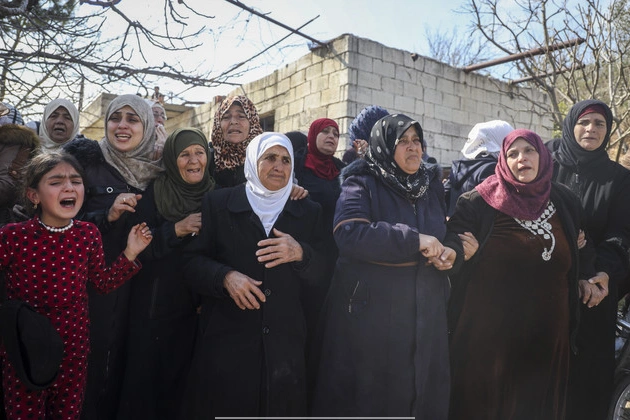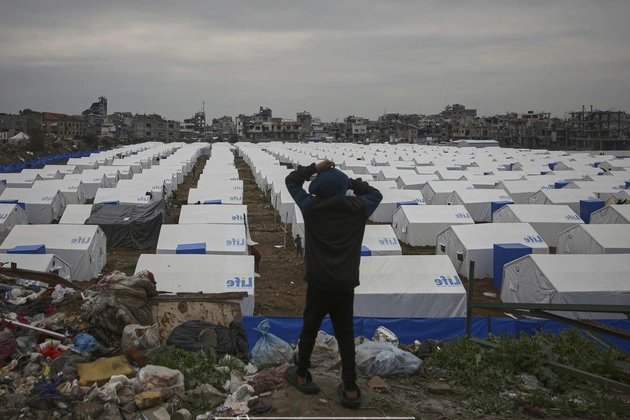
Biden and Netanyahu's Efforts Towards Israel-Hamas Cease-Fire
DEIR AL-BALAH, Gaza Strip — Israeli Prime Minister Benjamin Netanyahu and President Joe Biden discussed on Sunday the ongoing efforts to reach a cease-fire and secure a hostage release deal in the Israel-Hamas conflict, indicating a heightened urgency to finalize an agreement before the upcoming inauguration.
Despite previous setbacks in mediated talks involving the United States, Egypt, and Qatar over the past year, recent indications suggest a renewed optimism in achieving a resolution. The call between Biden and Netanyahu coincided with the presence of Israel’s Mossad foreign intelligence chief, David Barnea, and Biden’s top Mideast adviser, Brett McGurk, in Doha, Qatar. This involvement of high-level Israeli officials signals a significant step towards potential agreement.
Progress in Negotiations
Biden’s national security adviser, Jake Sullivan, mentioned that McGurk has been actively finalizing the details of a proposed agreement text to be presented to both parties. While expressing optimism about the proximity to a deal, Sullivan refrained from making definitive predictions about the timeline for reaching an agreement before the inauguration date.
The White House and Netanyahu’s office verified the phone conversation between the two leaders, underscoring the ongoing diplomatic efforts to secure a lasting cease-fire and release of hostages.
Current Cease-Fire Prospects
Amid discussions, the focus has shifted towards a phased approach to the cease-fire, with Netanyahu indicating a commitment to the initial phase involving a partial hostage release in exchange for a temporary cessation of hostilities.
Conversely, Hamas has emphasized the necessity of a complete Israeli troop withdrawal from Gaza, while Netanyahu has stressed the importance of neutralizing Hamas’ military capabilities within the region.
Challenges and Considerations
The negotiations have encountered complexities regarding the selection of hostages for release, the identification of Palestinian prisoners for potential exchange, and the extent of Israeli troop withdrawal from key areas in Gaza.
Notably, the conflict in Gaza has resulted in significant casualties, with the Health Ministry reporting over 46,000 Palestinian fatalities, predominantly comprising women and children. The escalation of hostilities stemmed from Hamas’ prior attack in October 2023, which led to widespread casualties and abductions.
Public Sentiment and Expectations
The families of remaining hostages in Gaza have intensified calls for a swift resolution to reunite their loved ones, prompting public demonstrations in Israel urging for immediate action. In Gaza, residents are cautiously hopeful for a halt to the destructive campaign, emphasizing the need for tangible progress on the ground to validate the prospects of a lasting truce.
As negotiations persist, the international community closely monitors the evolving dynamics of the Israel-Hamas conflict, underscoring the critical importance of reaching a comprehensive and sustainable resolution for lasting peace in the region.















